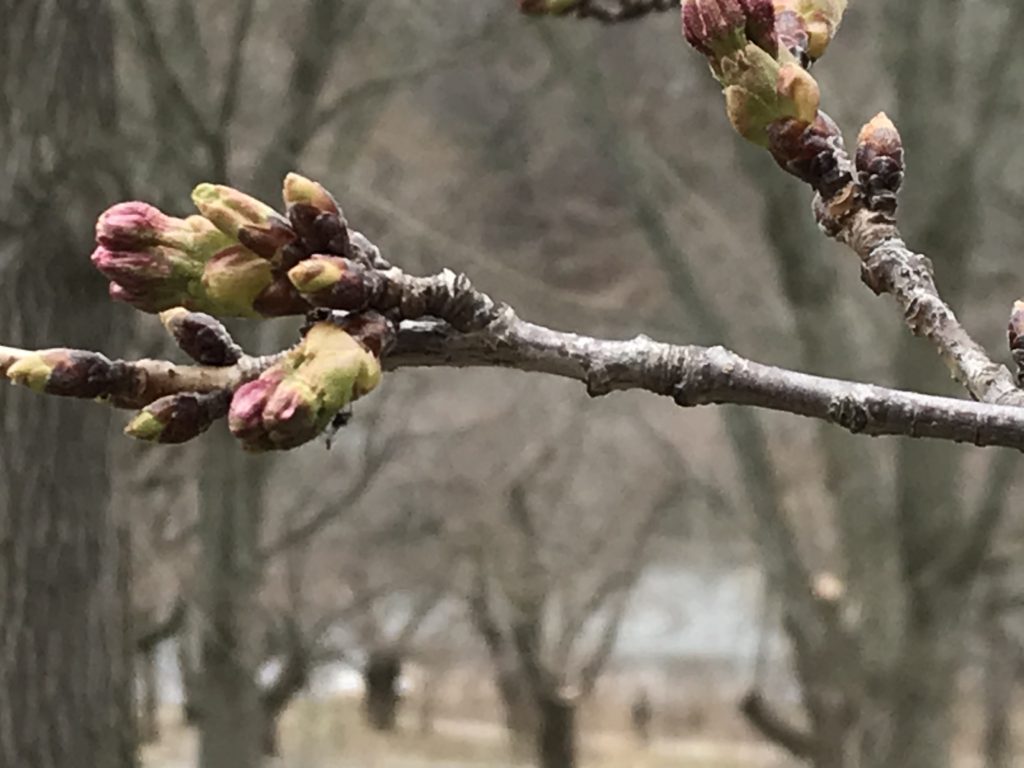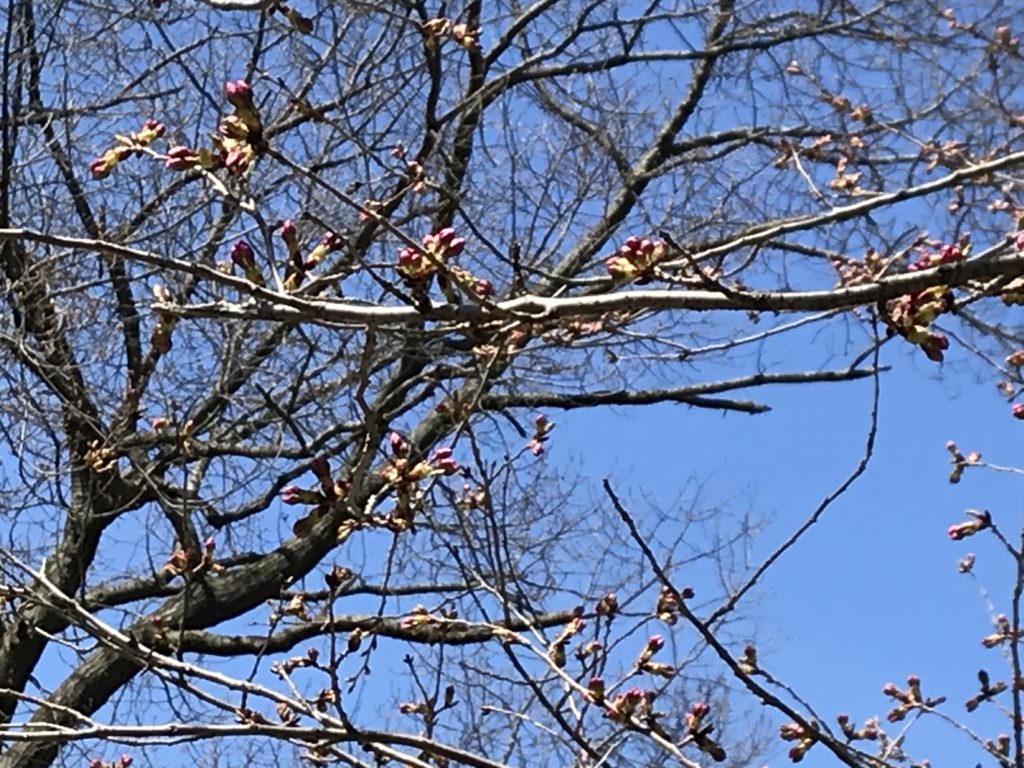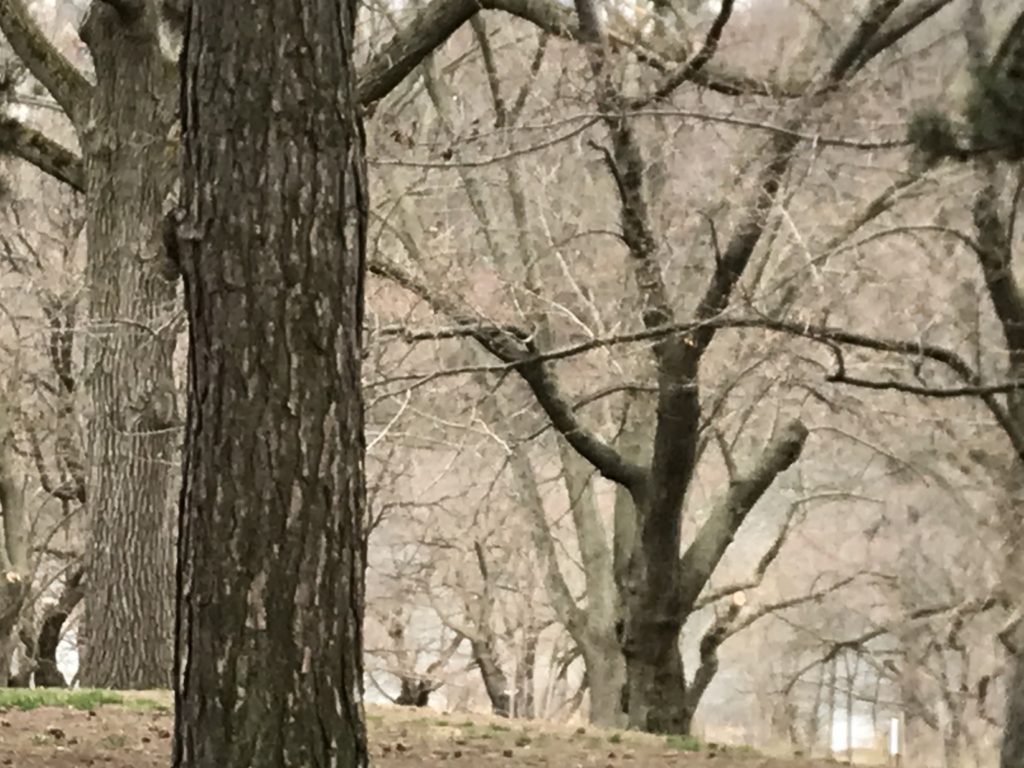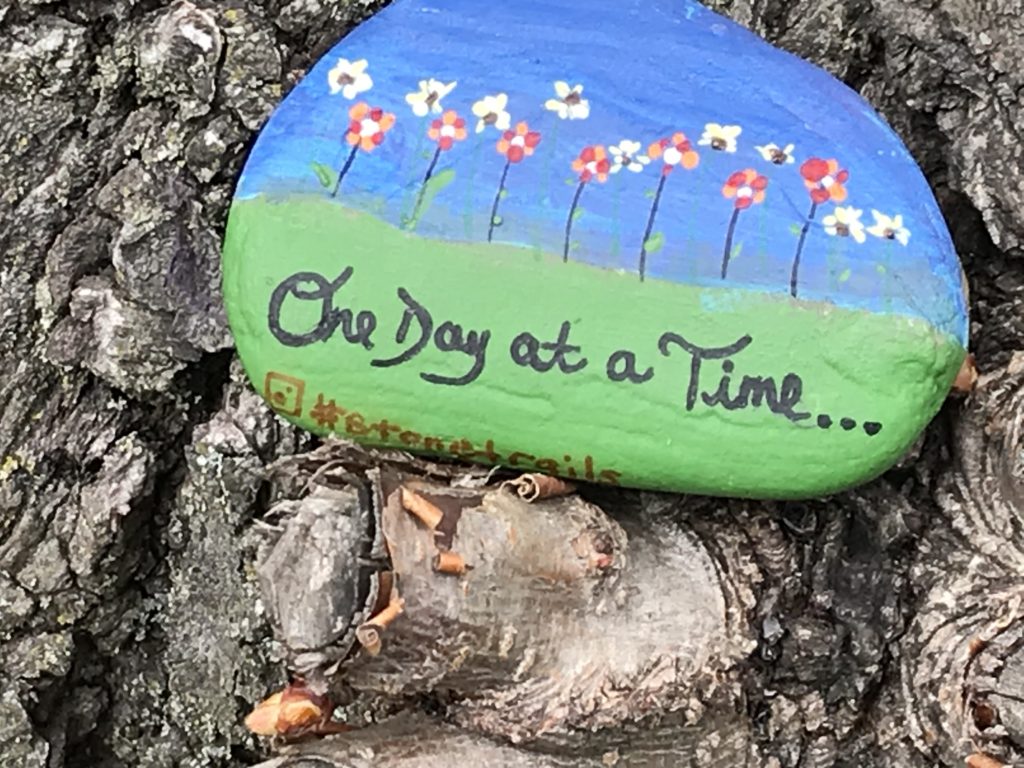He gazes through a blur of tears
at the dim evening clouds.
Even the flowers,
reflecting the hue of infirm
times, turn pale.
—Shinkei, translated by Esperanza Ramirez-Christensen *

We can’t be there this year, among the cherry blossoms in High Park. The festival has been cancelled, the whole park closed for fear that people will gather, trying to catch sight of the blossoms in their bloom. The risk is too great.
To whom shall I speak of
the loneliness the pain.
Even in the days of
falling flowers, only the rain
sounds in the night.
I’ve gone to the festival every year for decades: throngs of people laughing and picnicking, the park transformed by a festal atmosphere—petals falling onto kimonos, cos-play, cut-off jeans. I sometimes wish it were quiet, and I could commune with the frailty of the flowers, the tenuousness of life they convey. Then a woman skips down the hill to take her lover’s hand, or a father lifts his child to the branches, his turban the colour of the sky, and I turn my attention from the trees to the fullness of the scene: faces from across the globe, cadences of languages I’ve never heard before. All of us, crowded together in a seasonal ritual enfolding us in cycles of nature and history—the ancient traditions of Japan, as well as the newer traditions of our multicultural city.
It is a world where
nothing is ultimately
good or bad.
Even the wind is stilled in
the wake of scattered petals.

The cherry trees were a gift from the government of Tokyo, given to Toronto in the wake of the Second World War. Cherry blossoms are said to instill a sense of ‘aware,’ a quintessential Japanese attitude defined as a “poignancy or pathos as people and events pass by and fade ever so quickly.” The scholar Steven Heine says aware is caused by the gap between various movements of time: the swiftness of change in the external world, versus our internal ability to comprehend loss. I like that explanation. And I’m familiar with the sensation. As a woman of Greek heritage, I relate aware to nostalgia; it seems to capture that same sweetness of pain, except, with aware, you long for something as it’s pulling away—leaving your grasp—rather than something that’s already gone.
In his heart he makes a vow with
departing spring when it returns.
“If this body remains,”
is his sole thought, eyes upon
the scattered flowers.

The Zen master Dōgen is dismissive of aware. He says it subsumes us inside our emotions, preventing us from sensing the unendingness of life-and-death, the interconnectedness of I-and-other. But even Dōgen, who founded Sōtō Zen in medieval Japan, allows that awakening can begin with an emotion, primarily one that arises as we contemplate nature. For example: I see the cherry blossoms fall; their beauty heightens my sensitivity, my ability to absorb the motion and energy of all around me. At first, this elicits a personal emotion—grief at the fragility of existence, or anger at the inevitability of loss. If we remain on this plane of response, we’re sunk inside the negative aspects of aware. But if the sensation stimulates us—asks us to greet the confusion it brings with a deeper and more determined desire to understand ourselves and our relation to the world—then physical beauty and sorrow can be the basis of enlightenment.
Wavering between dream and
reality, the sky before dawn.
A cascade of petals
floating in the moonlight—
an unearthly sight.
I’ll miss the cherry-blossom festival this year, another absence in a season that’s stripped us bare of ritual and togetherness. This crisis has unsettled me, destroying what I know the world to be, the assumptions that underlie my stance toward the future, myself, other people—a stance that determines not only my expectations, but also my values: what I hold dear, what I let go, what’s cherished most in the act of release. How I learn, therefore, to live differently.
*All the poems are by Shinkei, a fifteenth-century Japanese poet, translated by Esperanza Ramirez-Christensen in her book Heart’s Flower: The Life and Poetry of Shinkei.
April 26, 2020
